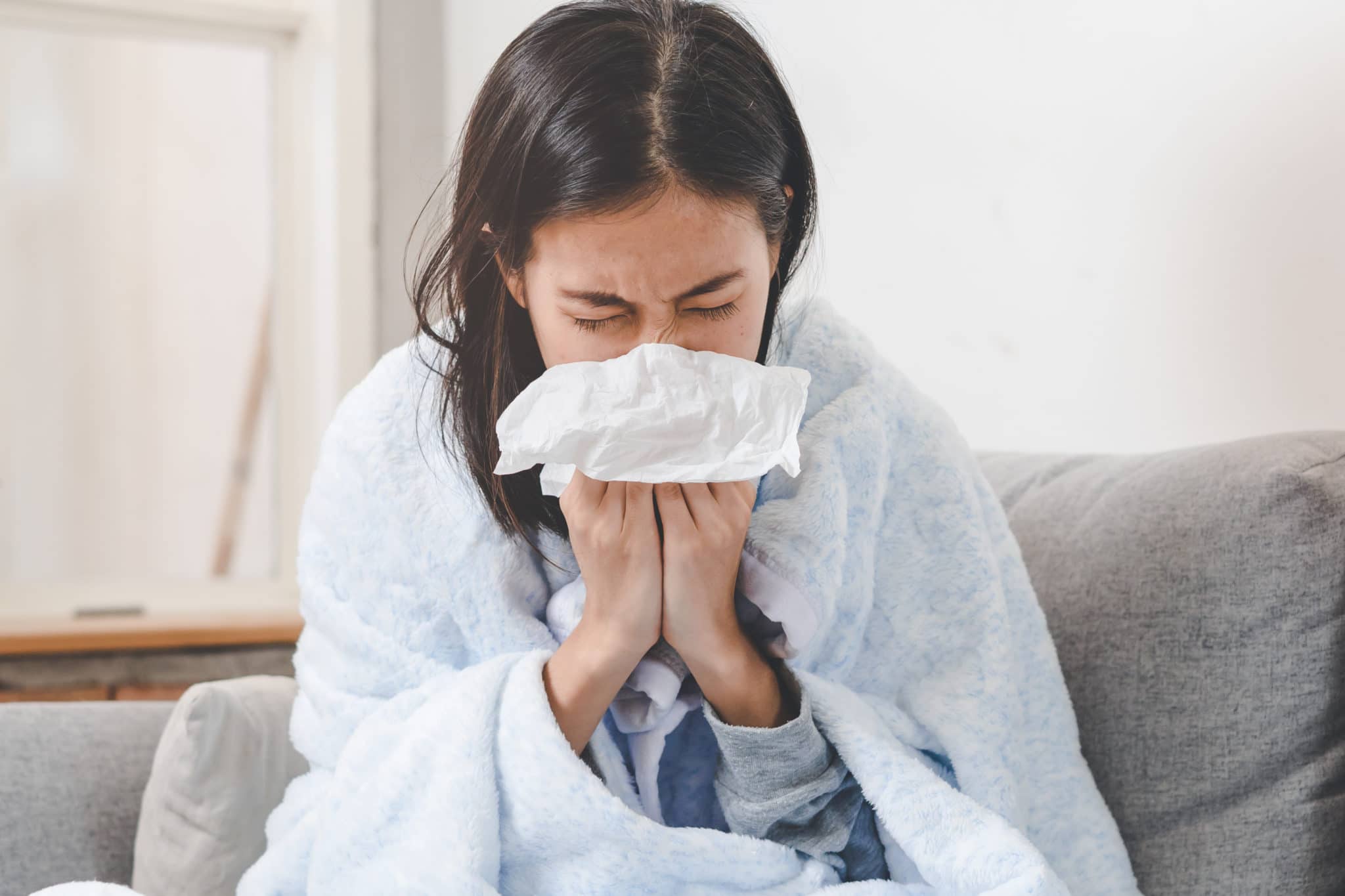We’ve probably all been in a position where, just as we start to feel better from a cold, our partner or colleague nearby suddenly starts to show symptoms – and then the panic sets in. After all, if you’ve just recovered, you probably don’t want to get ill all over again. But is that even possible?
The virus variations
Unfortunately for us, there are lots of different viruses which can all cause very similar common cold-like symptoms. These include viruses like parainfluenza virus, adenovirus and rhinovirus, all of which cause things like sneezing, headaches, coughs and a runny nose.
However, each of these viruses also have subcategories, called serotypes, or strains. For example, rhinovirus has over 100 different serotypes. Now, the good news is that you can’t get ill from the same virus serotype right after getting better, due to the fact that you’ll have developed antibodies which help to protect your immune system for a little while. The not so good news is that you can get another cold from a different virus, or a different virus strain.
Keep in mind that it’s rare that two virus serotypes that cause the common cold will be in circulation at the same time of year in one location. What this means is that if you get sick and then your partner does just after, you’ve probably both suffered due to the same dominant strain of virus – which you have now developed antibodies against. There are also some occasions where the antibodies you’ve developed against one strain will offer some protection against other closely related strains, but this is not guaranteed.
Wait to get well
One of the most common occurrences when people think that they’ve caught the same cold again, having only recently felt better, is that they actually hadn’t fully got over that first illness. If you’re feeling sick again it’s likely that your body is presenting some residual symptoms from the original virus, with one Dr saying that this can be for a few different reasons; perhaps you pushed yourself too hard without being fully recovered, or perhaps it was just a longer-lasting strain than you anticipated.
When it comes to antibodies, keep in mind that this protection may not last too long. Several viruses, including the influenza viruses, mutate at such a rate that it is possible to suffer from a cold due to the same virus strain during the next cold and flu season.
This rate of mutation is the reason why people are strongly advised to get a new flu vaccine every year. The annual vaccine has been designed to combat the most dominant flu viruses of that season, offering as much protection as possible from the strains most likely to cause illness at that time.
At FluCamp we’re working to understand more about the cold and flu viruses and how they work, in order to discover a way in which they can be treated, or eradicated for good. To find out how we use our clinical trials to conduct this research, head to our trials page, or contact our friendly team for more about how you can become an #EverydayHero and help us fight the flu.


